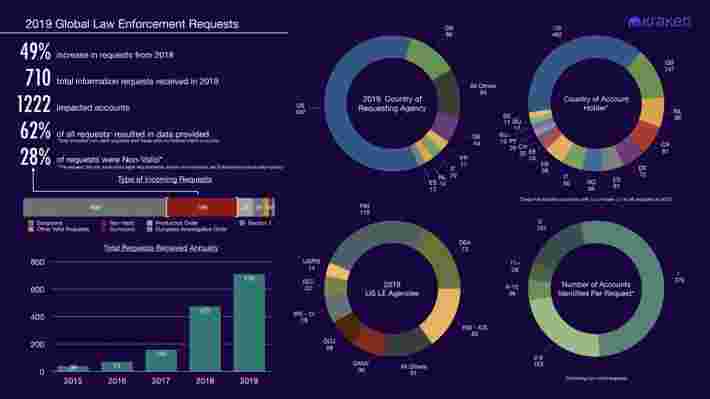Facebook‘s new digital currency Libra has received an early jolt from the Indian government. The authorities in Asia’s third-largest economy are no more keen on the social media giant’s project than any cryptocurrency that came before it.

“Design of the Facebook currency has not been fully explained,” India‘s Economic Affairs Secretary Subhash Garg told Bloomberg on Saturday. “But whatever it is, it would be a private cryptocurrency and that’s not something we have been comfortable with.”
A virtual ban on cryptocurrency trading came into effect in India in April 2018 when the Reserve Bank of India (RBI) issued a notice to Indian banks asking them to stop dealing with any cryptocurrency businesses. The Supreme Court of India endorsed the ban in an interim order in July that year. Peer-to-peer trading of virtual currencies remains legal in India.
The banking ban has forced almost all of the cryptocurrency exchange desks in the country to shut down their business or move elsewhere.
Facebook hasn’t approached either the Indian government or the RBI seeking approval for operating Libra in the country as of now, Indian daily Economic Times confirmed citing sources from the company last week.
If the past is any indication, the cryptocurrency is likely to run in problems with India‘s anti-money-laundering (AML) and tax evasion laws — even if it manages to find a way around the RBI diktat.
India is currently working on a draft bill that — according to sources — could outlaw all cryptocurrency use in the country under the existing prevention of money laundering act (PMLA), with jail terms for mining, holding, or selling any digital assets.
According to Statista, Facebook has more than 300 million users in India at present and Whatsapp boasts more than 400 million. The numbers are expected to surge further over the coming years.
Strategist with American financial services provider Jefferies Financial Group told Bloomberg that India would be a critical market for Facebook if Libra were to succeed.
With Libra already facing scrutiny from authorities across the globe, a knee-jerk ‘no’ from the Indian government might as well kill Facebook’s cryptocurrency ambition in its infancy.
Cryptocurrency exchange Kraken sees 49% yearly increase in law enforcement information requests
If you’ve been following the world of cryptocurrency , it should come as no surprise that law enforcers are working hard to track down criminals that use digital assets.

In its yearly compliance report , cryptocurrency exchange Kraken says that global data requests from law enforcement agencies in 2019 are up 49 percent over 2018.


The crypto exchange says it received a total of 710 information requests in 2019 which impacted 1,222 accounts.
Back in 2018, law enforcement agencies made 475 information requests from Kraken.
If last year’s news coverage is anything to go by, it’s not surprising that the US leads the charge having made the most requests. Across 2019, law enforcement agencies from the US made 432 information requests.
The US was followed by law enforcement agencies from Great Britain which made 86 requests.
Interestingly, Denmark made the third highest number of information requests at the exchange.
Looking more closely at the US, we can see it was the Federal Bureau of Investigations (FBI) that made the most requests. Kraken says the bureau made 116 information demands.
Given the volume of arrests in the US made last year when drugs had been sold in exchange for Bitcoin or other cryptocurrency, it’s not surprising that the Drug Enforcement Agency (DEA) made a number of requests — 73 to be exact.
It should be pointed out that not every request from law enforcement is valid. According to Kraken‘s figures, 28 percent of requests didn’t meet local legal requirements or the company’s information production policies.
As a result, Kraken says it was able to provide data to only 62 percent of requests. It’s not clear what’s happened to the extra 10 percent of requests, but these could still be open cases.
Indeed, as I’ve already mentioned, given the number of cryptocurrency related crimes last year it’s not surprising law enforcement agencies from around the world are asking for information from digital asset exchanges. The information could help in prosecutions.
While Kraken has provided a small snapshot, it’s probably fair to say that the growth in requests from law enforcement agencies is indicative of an industry wide trend. But until other exchanges publish comparable figures, it’s hard to say for sure.
Indian government ban on ‘non-sovereign’ cryptocurrency would see holders jailed for up to 10 years
A government panel in India has issued a recommendation to ban all “ cryptocurrencies created by non-sovereigns,” a step which could be applied to Bitcoin .

“The Committee notes with serious concern mushrooming of cryptocurrencies almost invariably issued abroad and numerous people in India investing in these cryptocurrencies . All these cryptocurrencies have been created by non-sovereigns and are in this sense entirely private enterprises ,” their report reads.
The panel said anyone dealing with digital currencies of any kind could face 10 years behind bars and be handed hefty fines.
As part of its recommendation, the panel laid out the reasons why cryptocurrencies should be banned.
“The Committee notes with serious concern mushrooming of cryptocurrencies almost invariably issued abroad and numerous people in India investing in these cryptocurrencies . All these cryptocurrencies have been created by non-sovereigns and are in this sense entirely private enterprises ,” the report, – which you can read here – says.
“There is no underlying intrinsic value of these private cryptocurrencies . These private cryptocurrencies lack all the attributes of a currency. There is no fixed nominal value of these private cryptocurrencies i neither act as any store of value nor they are a medium of exchange ,” it adds.
Therefore, it continues, “the Committee is of the clear view that the private cryptocurrencies should not be allowed. These cryptocurrencies cannot serve the purpose of a currency. These cryptocurrencies cannot serve the purpose of a currency. The private cryptocurrencies are inconsistent with the essential functions of money/currency, hence private cryptocurrencies cannot replace fiat currencies .”
Although largely critical of decentralized currencies, the report does support the possibility of a state-issued digital currency in India .
It also praises decentralized ledger technology, saying it is “an important and innovative technology, which will pay a major role in ushering in the digital age ,” but calls for specific legislation to promote and regulate the use of blockchain technology in financial and associated fields.
India has to date had a tumultuous relationship with cryptocurrencies , seeing its fair share of scams and regulatory uncertainty. A virtual ban on cryptocurrency trading was established in April last year when the Reserve Bank of India ( RBI ) issued a notice to Indian banks asking them to stop dealing with any cryptocurrency businesses. But for now, peer-to-peer trading of virtual currencies remains legal in India .
Just last week Hard Fork reported on how police in India rescued three people, including two cryptocurrency traders, who were kidnapped and held to ransom for two weeks to the tune of $840,000 (80 Bitcoin ).
India ‘s tough stance on cryptocurrency comes two weeks after Facebook ‘s controversial Libra received an early jolt from the Indian government.
The panel produced the report and draft legislation which will be used by government and regulators before a final decision is reached, the government said today.











